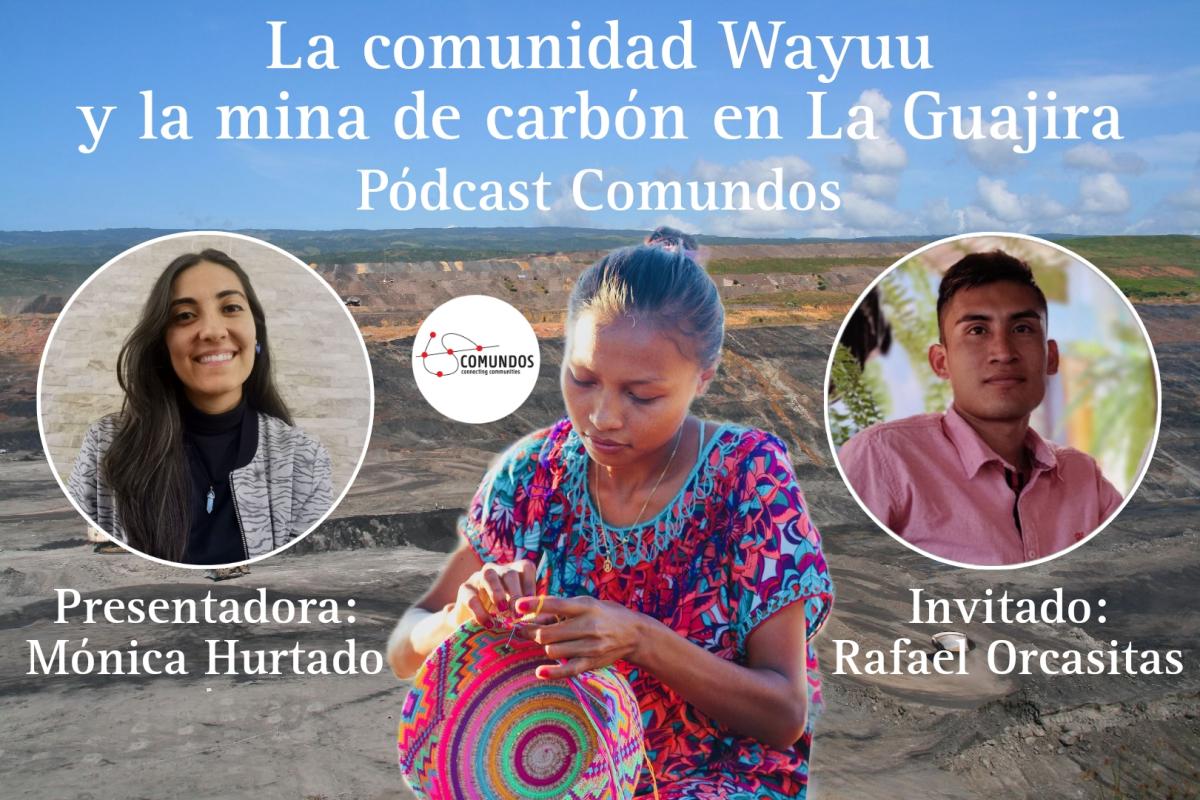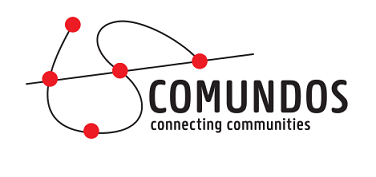Episode 06: The Wayuu Community and The Coal Mine in La Guajira

In this episode of the Comundos podcast, we talk about the traditions of the Wayuu indigenous community in Colombia, the impact of the industry on their lives, and media literacy via the completion of a digital storytelling project, which you will find here:
A Look into the Past so as Not to Forget My Roots
- Guest: Rafael Orcasitas (R)
MH: Welcome to another episode of the Comundos podcast, where we explore subjects like media literacy and digital storytelling, as well as offer communities all over the world a voice, so they may talk about the issues that are most important to them.
This is Monica Hurtado, your host. And I will start by inviting you to visit our website Comundos.org, our Facebook page, and our YouTube channel where you will find videos with stories as interesting as the one we bring you today.
¡Comundos connects communities!
Today we have a guest from the provincial Wayuu indigenous community in northern Colombia, South America. Rafael Orcasitas is a student of social communication and the leader of his community.
Hello Rafael, what a pleasure to meet you today.
R: Welcome, everyone, and hello Monica. Thank you so much for inviting me.
MH: Rafael will share his experience making a digital story on a theme connected to the United Nations Sustainable Development Goals, particularly those that seek to build sustainable communities and societies, promote health and wellbeing, and protect terrestrial ecosystems.
Could you please tell us some facts about yourself, your background, and your cultural heritage?
R: I am now pursuing a degree in social and audiovisual communication at Universidad Nacional Abierta y a Distancia (UNAD). I am an editor in the new edition of Wikipedia for the addition of local languages, especially Wayuunaiki, a leader in my community and an advocate of my reservation's digital platform. I am of Wayuu origin, I belong to a population rich in customs that characterize us, starting from our ways of life and traditional practices.
MH: Please tell us about some of your community's most important traditions or rituals, and how they are still practiced today.
R: One of the most important traditions practiced not only in my community, but in all communities as ancestral customs, is the performance of traditional dances as part of an event that brings together several castes, in which traditional games and Yonna, one of our dances, are competed in. Because of the significant influence caused by technical advancements and the usage of ICT, such behaviors have steadily faded over time.
MH: How interesting to learn about your cultural richness. Now let's take a look at the video you made where you told a story about the impact of the natural resource extraction industry on the development of a town and its people and how their lifestyle and traditions have been affected.
What motivated you to talk about this situation in the video?
R: The main objective of creating the audiovisual product, was to make an anonymity, making a complaint to a multinational that generates a great environmental impact, not only to the communities that are in the area of influence of the same, but also to the flora and fauna of the region, since these mining activities, are practices made in open pit. This open-pit mine is the largest in South America and for those who do not know much about it, this type of mine uses explosives, among other mechanisms, to remove the material from the ground and extract the natural resource from the surface.
MH: What are some of the biggest challenges facing the Wayuu community living near this mine, and how are they working to overcome them?
R: One of the most significant issues confronting the communities around this multinational is the prohibition of cattle access from these populations to locations limited by the company, creating a barrier that forbade the community from making appropriate use of the practice of grazing and livestock production. The elderly, on the other hand, have lost spiritual contact with nature due to the loud noises of this machinery. Despite conversations with the firm to decrease the inconvenience caused by the loud noises, no solution has been found unless the company ceases its mining operations.
MH: What practices or changes have you adopted in recent years to cope with this situation?
R: Well, to deal with the multinational company's actions, it was decided to create strategies such as creating pastures and feeding the animals, leaving aside the practice of grazing, as well as the sale of these animals to make their breeding sustainable.
MH: Thank you for sharing your opinion and knowledge about this situation. Now, I would like to ask you specifically about the experience of making this video and digital storytelling.
What do you think this experience has contributed to your vision of the media? Has it been useful to you?
R: This experience was really valuable for me since it allowed me to improve my storytelling skills and learn more about my culture.
MH: What else did your time with Comundos teach you?
R: Although it was a brief experience, it was excellent and enriching because, in addition to expanding my knowledge, I met people from all over the department and region who contributed to my personal and spiritual growth, as well as learning about the various dialects of my native language.
MH: What are your thoughts on how media literacy for Wayuu people could help empower your community while maintaining cultural preservation and sovereignty?
R: The Wayuu people's media literacy would tremendously contribute to the preservation of our culture because by using these means, we may document the excellent usage and practice of our traditions, either in written form or in picture and video formats. To conserve and strengthen these ancestral customs while passing them down to future generations.
MH: Finally, I would like to invite our listeners to also visit Rafael's YouTube channel where he has, among other videos, an extended version of the story he did with Comundos.
Could you say that this experience was a foundation for further storytelling and content creation?
R: Yes. This experience helped me to realize that by creating this content, I can make these stories known worldwide, as well as many others that are part of my culture, which are very important to preserve.
MH: Thank you very much for your time, experiences, and opinions.
And many thanks to you for traveling with us to Colombia for this new episode of the Comundos podcast, we want to continue promoting intercultural dialogues and sharing more stories about communities around the world.
Stay tuned with us through our YouTube channel and our videos in countries such as Brazil, Burundi, Guatemala, Cameroon, Congo, and Mozambique, among others.
Translated by Mónica Hurtado (VUB)
A gift for Comundos
Over the years, Comundos has helped remote communities around the world by teaching critical thinking, media literacy and the use of communication technology.
To do this effectively, we need your support for computers, translations, courses and social media management.
Thank you .
BE11 1030 2973 8248





